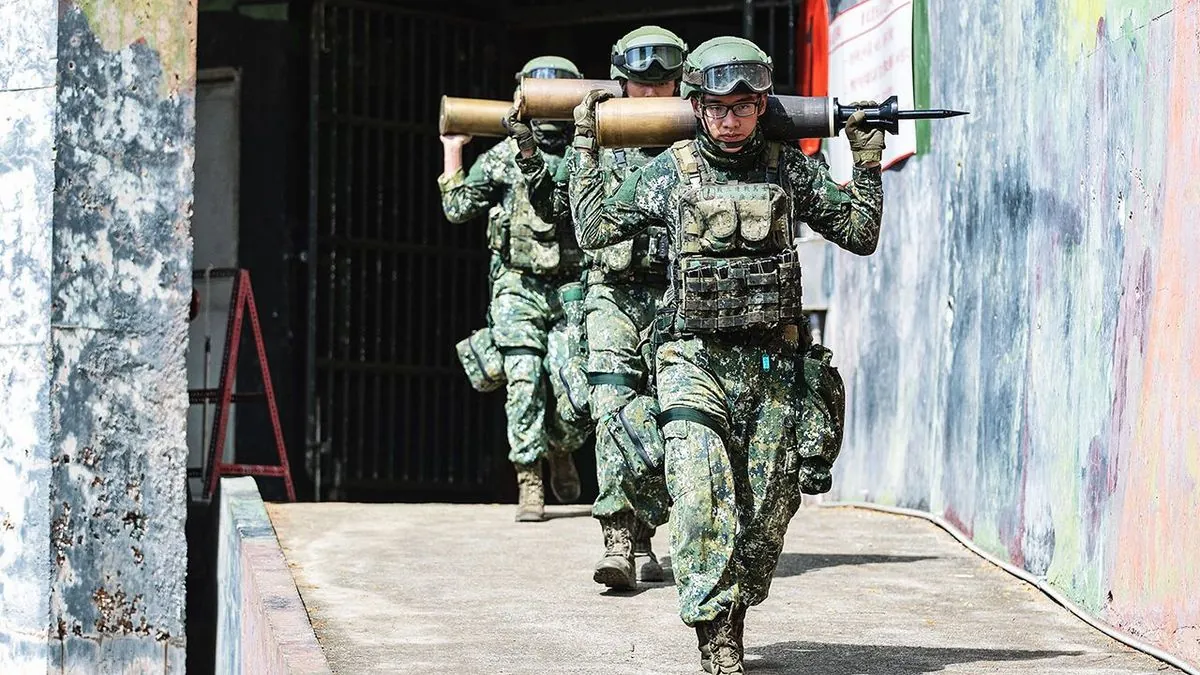Taiwan's cabinet has announced a significant increase in defense spending for 2025, reflecting the island nation's commitment to bolstering its military capabilities. The budget is set to rise by 7.7%, outpacing the projected economic growth of 3.26% for the year.
The planned defense expenditure for 2025 will reach T$647 billion ($20.25 billion), accounting for 2.45% of Taiwan's gross domestic product. This marks an increase from the current 2.38% allocation. The decision comes as Taiwan, with a population of approximately 23.5 million, faces mounting pressure from China.
Lai Ching-te, Taiwan's President, has emphasized the importance of strengthening the island's defenses. The budget increase includes a special allocation of T$90.4 billion for new fighter jets and enhanced missile production. This forms part of a larger T$240 billion extra military spending package announced in 2021, to be implemented over five years.
Hsieh Chi-hsien, head of the defense ministry's comptroller bureau, stated that while reaching 3% of GDP for defense spending remains a goal, Taiwan's current approach focuses on steady growth based on specific needs. He emphasized that Taiwan does not intend to engage in an arms race with other nations.
China's increasing military activities near Taiwan have been a significant factor in the island's defense strategy. The People's Liberation Army Air Force has been conducting almost daily missions in the vicinity of Taiwan. In May 2024, shortly after President Lai took office, China staged war games around the island, further escalating tensions.
"We will increase (spending) steadily according to our needs. Future spending also depends on whether Taiwan could acquire key and important equipment."
It's worth noting that Taiwan's semiconductor industry, producing about 60% of the world's semiconductors, adds strategic importance to the island's security considerations.
The proposed budget still requires approval from Taiwan's parliament, where the ruling Democratic Progressive Party lost its majority in January 2024 elections. However, the main opposition party, the Kuomintang, has expressed support for strengthening the island's defenses.
In comparison, China announced a 7.2% increase in its defense budget for 2024, reaching 1.67 trillion yuan ($234.10 billion). This represents about 1.3% of China's GDP, according to analysts.
The United States, Taiwan's primary arms supplier under the Taiwan Relations Act, has consistently encouraged Taiwan to modernize its military and increase defense spending. Nikki Haley, a former U.S. ambassador to the United Nations, recently praised Taiwan's commitment to defense spending, suggesting that other free nations should follow suit.
As tensions persist across the Taiwan Strait, which is about 180 kilometers wide at its narrowest point, Taiwan's increased defense budget reflects its determination to maintain its de facto independence and protect its democratic system of governance.
